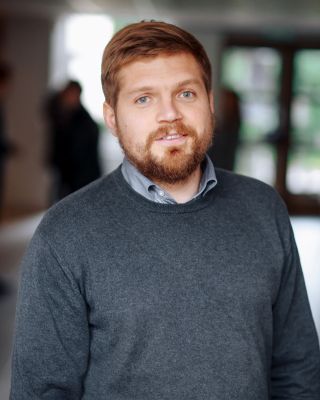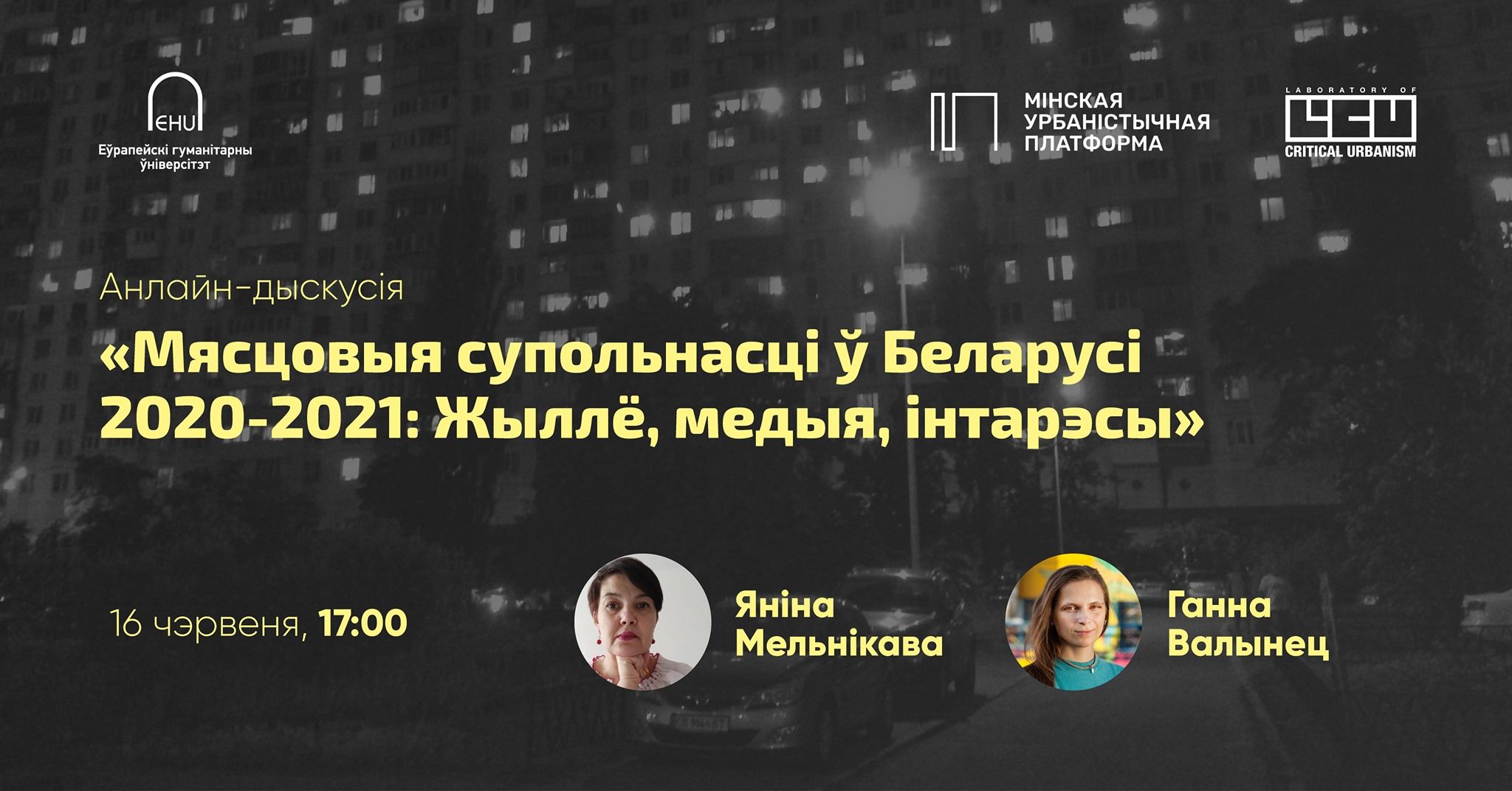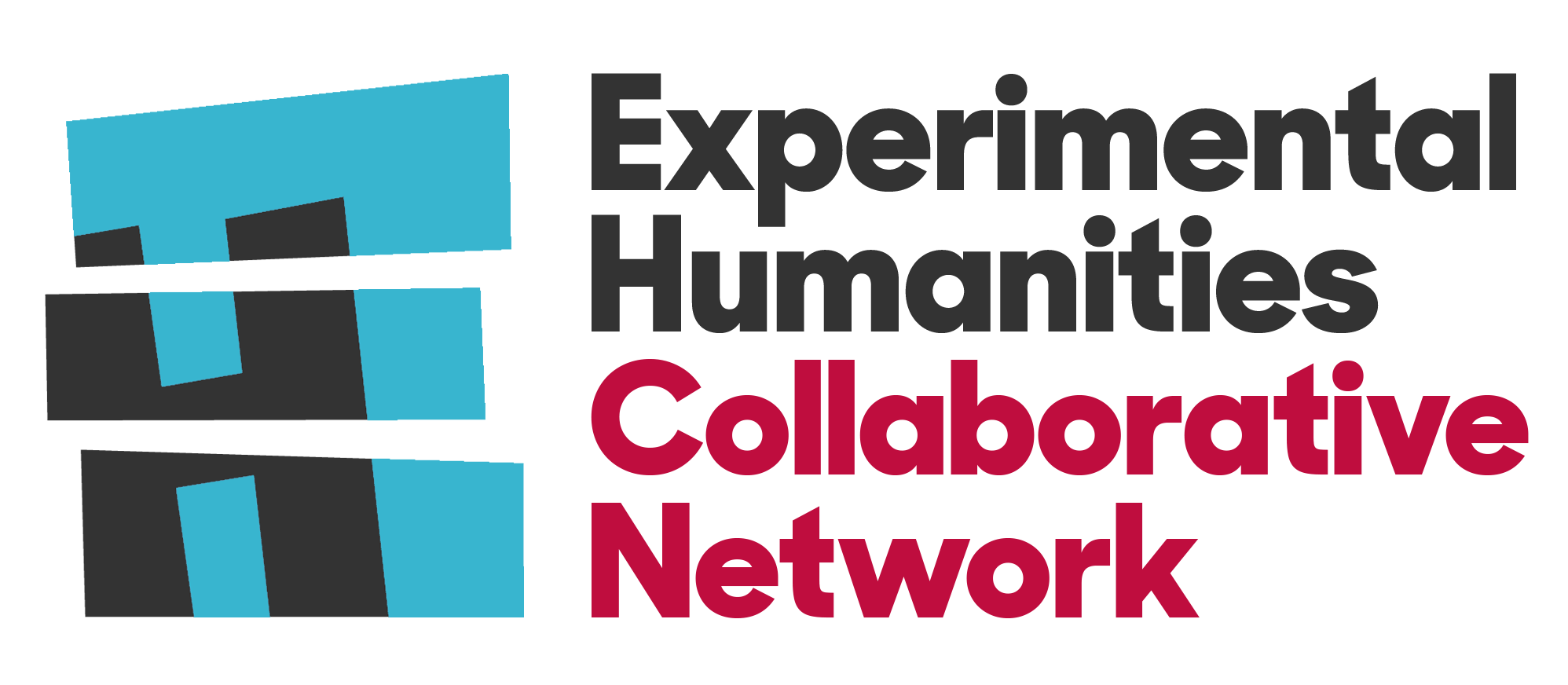Welcome to The Experimental Humanities Collaborative Network
Local Community as a Factor of Politics in Belarus
Hosted by European Humanities University
This event addressed digital and civic journalism dimensions of the activation of political life on local and national levels in Belarus in 2020. It brought together an academic urban researcher and journalists working on the issue of local communities. The main topic of discussion was the experience of local activists, and the experience of visual and narrative journalists documenting the boom of neighborhood communities in highly risky repressive political circumstances. The following questions were discussed during the event:
- Is the growth of activeness of local communities in Belarus in 2020 a new phenomenon? Or did it exist during a few recent years, and just became visible in the period of the presidential election campaign and its consequences?
- How did the boom of local communities in Belarus impact the mass media agenda and journalists' work? Could we say that in the mass media this phenomenon was underestimated or overestimated in summer and autumn 2020?
- Is housing the main factor of local community formation? Is it correct to say that the most active local communities form around housing that was recently built, on a fully commercial basis? Are there other factors of local communities formation, except housing?
- Do local communities in Belarus have an agenda, autonomous from general political agenda? Can we expect this autonomous agenda?
- Are local communities possible without digital platforms in Belarus today? Are there instruments for local communities functioning that could substitute digital platforms?
Roundtable speaker Andrey Vazyanau, member of Minsk Urban Platform
Roundtable speaker Yanina Melnikava, chief editor at GreenPortal - a news portal of Belarus Green Network
Roundtable speaker Hanna Valynets, GreenPortal - a news portal of Belarus Green Network
Organized by European Humanities University Siarhei Liubimau is a co-founder and lead of the Laboratory of Critical Urbanism (2007) and Associate Professor at the Department of Social Sciences at the European Humanities University in Vilnius (2014). For his doctoral research, he worked with the issue of trans-border urbanism and studied changes of EU internal and external border regimes as urban scale specific processes. Empirically, he worked on towns on the German-Polish and Polish-Belarusian borders (Institute of Philosophy and Sociology, Polish Academy of Science, 2005-2010), as well as with the borders of Luxembourg (Bauhaus-Dessau Kolleg 'EU Urbanism', 2006-2007). Starting from 2015, he has been engaged in the Laboratory of Critical Urbanism in various research, educational and soft planning projects in the former 'nuclear' town of Visaginas in Eastern Lithuania (satellite of the decommissioned Ignalina Nuclear Power Plant). Together with Benjamin Cope, he has edited a book 'Re-Tooling Knowledge Infrastructures in a Nuclear Town' (2021), documenting LCU work in Visaginas in 2016-2020. From 2018 he is part of CityIndustries research network. He has been a fellow at the Central European University (Budapest), the Institute for Human Sciences (Vienna) and the Helsinki Collegium for Advanced Studies.Siarhei Liubimau



